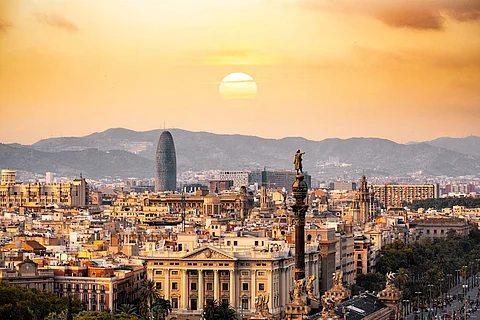

The Spanish government has demanded the removal of nearly 66,000 Airbnb listings, citing violations of tourist accommodation regulations. The move comes as the country braces for another summer of mounting protests against over-tourism.
Thousands took to the streets in the Canary Islands on Sunday, highlighting growing discontent over the impact of mass tourism on housing availability and affordability.
Pablo Bustinduy, Spain’s Minister for Social Rights, Consumer Affairs said the affected listings had breached several rules governing short-term tourist rentals.
The announcement followed a Madrid court order requiring Airbnb to immediately delist 4,984 properties identified by the ministry. These are located across six regions: Madrid, Andalusia, Catalonia, Valencia, the Basque Country, and the Balearic Islands.
The ministry is awaiting further court decisions on the remaining 60,000 or so listings, which it considers non-compliant. It said many of these properties lacked valid licence numbers, used incorrect registration details, or failed to clarify whether the owners were renting professionally or privately.
Bustinduy hailed the court ruling as “a clear victory for those who fight to protect the right to housing”, adding: “We can ensure that no economic interest outweighs housing, and that no company—however large or powerful—is above the law.”
Housing has become one of Spaniards’ top concerns, particularly in major cities, as rental prices have soared while wages have stagnated. Rents have doubled over the past decade, with many blaming the proliferation of short-term holiday lets for pushing locals out of the market.
Spain, the world’s second most visited country after France, welcomed 94 million foreign tourists in 2024—a 13% increase from the previous year. Prime Minister Pedro Sánchez recently acknowledged the strain, saying, “There are too many Airbnbs and not enough homes,” and pledged to curb the unchecked expansion of tourist rentals.
Some local authorities are already taking action. Barcelona has announced plans to eliminate its 10,000 short-term tourist lets by the end of 2028. Meanwhile, Airbnb has struck agreements with authorities in the Canary Islands, Ibiza and Murcia to ensure compliance with local rules.
The company responded to the court order and government demands by saying it would appeal and denied that any violations had been proven. It referred to a 2022 Spanish Supreme Court ruling which stated that hosts, not the platform, are responsible for listing details. Airbnb called itself a “neutral intermediary” rather than a real estate provider.
A spokesperson for the company added: “The root cause of Spain’s affordable housing crisis is insufficient supply to meet growing demand. Governments around the world are realising that regulating Airbnb does not solve housing shortages or return homes to the market—it only hurts local families who rely on hosting to make ends meet.”
Protests against over-tourism are expected to intensify over the summer. Demonstrations in the Canary Islands on Sunday were held under the slogan “The Canaries have a limit”. In Majorca, a group called Menys Turisme, Més Vida (Less Tourism, More Life) has called for a similar protest on 15 June.